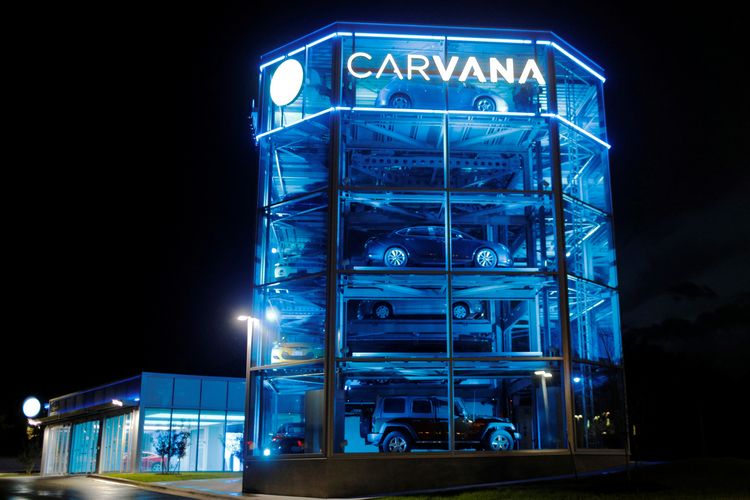Carvana Co wants to raise about US$338m next week by bundling up its first set of auto loans into rated securities. Starting a successful asset-backed issuance programme could give the startup a lower-cost alternative to issuing high-yield corporate bonds.
The online used car retailer has customers who go online to search, purchase, trade, finance and schedule cars to be delivered to their front doors, cutting out car dealerships in the process.
But changing buying habits in the US$764bn annual used car market can be hard and costly, particularly for a company that has yet to become profitable.
So a less costly way to raise money provides a way forward. Hence, tapping the ABS market.
FROM ONLINE TO OFF-ROAD
Carvana was founded in 2012, went public five years later and has plans to eventually reach 2m vehicle sales per year.
“That number may sound daunting to some, but looking backwards provides some helpful context,” Earnest Garcia, Carvana co-founder, president and CEO said on a February earnings call.
“Getting to 2m requires that we grow roughly 20x from here. Few companies scale like that. That said, we were 1/20 the size we are today, just 3.5 short years ago.”
Garcia said he had no plans for Carvana to raise more equity or debt outside of its asset-based financing program.
In September it issued $350m of Caa2/CCC+ junk bonds that mature in 2023 at a 8.875% yield, according to IFR data.
The upcoming ABS trade is backed by a pool of near-prime car loans from Carvana’s platform that will be spun into seven classes of bonds, which Moody’s and KBRA plan to rate Triple A to B2/BB, according to deal documents.
Whispers on its biggest US$73m 0.88-year Triple A portion were circulating in the mid-30bp range over EDSF, according to an investor watching the deal.
Further down in credit, its US$46m 3.79-year Baa3/BBB class was in the mid-100bp range over interpolated swaps.
Those levels were preliminary while the deal gains traction in premarketing.
But they were within striking range of similar bonds sold by rival car seller CarMax in January, according to IFR data.
CarMax rolled out its own buy-from-home pilot programme in Atlanta last December, with plans to expand nationally.
Carvana, meanwhile, has made a hard push to grow its geographical reach, boost its retail sales and move towards break-even.
The auto vender was in 85 markets across the US at the end of last year, up 93% from its reach in 2017, according to a March investor presentation.
The company also reported a 113% jump in retail units sold in the same period, while net losses narrowed to -13% from -19.1%.
Garcia said his focus is on making high-quality loans on cars that cost less, which puts borrowers in a better position to succeed.
“Customers that are less likely to default were more likely to become repeat customers,” he said on the earnings call.
Credit Suisse will structure the debut ABS and act as joint bookrunner with Amherst, Citigroup and Wells Fargo.
